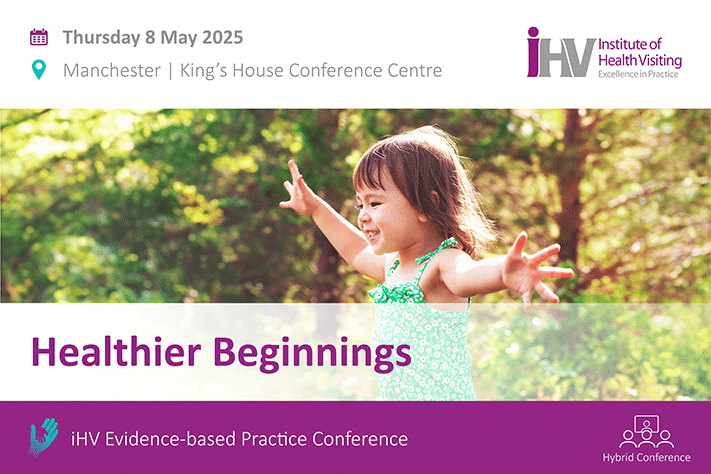
We are delighted to announce that bookings for our iHV Evidence-based Practice (EBP) Conference: ‘Healthier Beginnings’ are now open. We will be returning to King’s House Conference Centre in Manchester on 8 May 2025 – with options to join us in-person, or online, to give you flexibility.
This year’s iHV EBP Conference will showcase the latest health visiting research, evidence, clinical expertise and lived experiences, equipping practitioners with newfound knowledge and skills to ensure that all babies and children have a healthy beginning to their life.
Our vibrant iHV EBP Conference gets bigger every year and has become a health visiting calendar highlight for practitioners looking to deliver excellence in practice and connect with colleagues from across the UK.
The title of this year’s conference, ‘Healthier Beginnings’, is very poignant, especially with the new Government committed to raising the healthiest generation of children ever. The challenges that our babies, children and families face have been laid bare – we are now collectively focused on delivering solutions.
A first step towards achieving change is to start at the beginning…if we are to change the story, we need to change the beginning of the story. And health visitors are in a privileged position to play an important part in this, with practitioners and researchers from across the UK leading the way.
Join the discussions – be part of the solution at iHV EBP conference 2025.
Abstracts
Call for abstracts for iHV Evidence-based Practice Conference 2025 is now closed!







